Tribe and environmental groups urge Wisconsin officials to rule against Line 5 pipeline reroute
The tribal chair of the Bad River Band of Lake Superior Chippewa and environmental groups pushed back on a plan by Enbridge to relocate a portion of its aging Line 5 pipeline across northern Wisconsin, warning that the threat of a catastrophic spill would still exist along the proposed new route.
Associated Press
August 16, 2024 • Northern Region
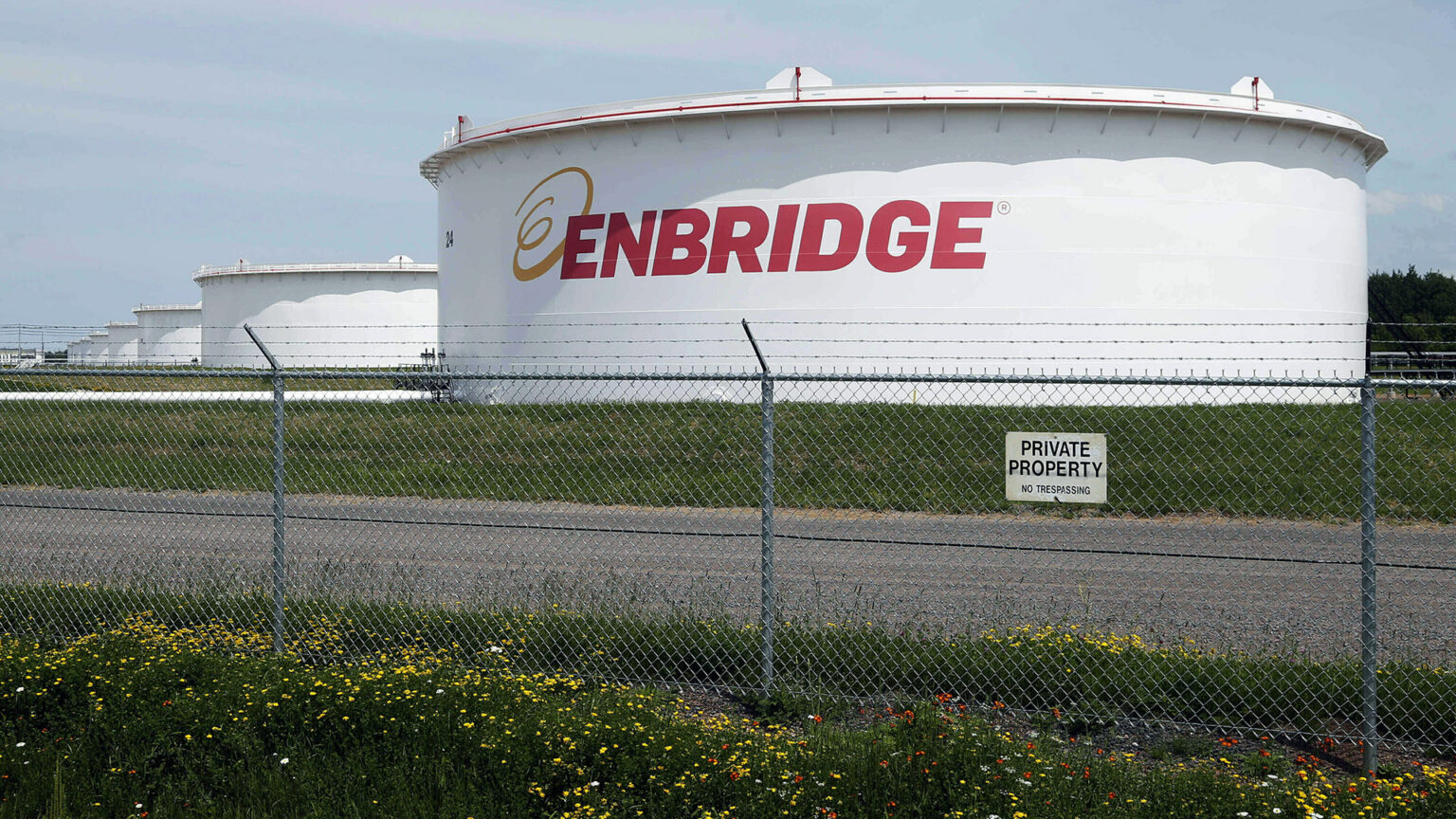
A row of storage tanks at an Enbridge Energy terminal stand behind a fence on June 29, 2018, in Superior. The Bad River Band of Lake Superior Chippewa and environmental groups urged the Wisconsin Coastal Management Program on Aug. 15, 2024, to determine that a proposed reroute of the company's Line 3 pipeline in northern Wisconsin does not comply with the state's coastal protection policies. (Credit: AP Photo / Jim Mone, File)

MADISON, Wis. (AP) — A tribal leader and conservationists urged state officials on Aug. 15 to reject plans to relocate part of an aging northern Wisconsin pipeline, warning that the threat of a catastrophic spill would still exist along the new route.
About 12 miles of the Enbridge Line 5 pipeline runs across the Bad River Band of Lake Superior Chippewa’s reservation. The pipeline transports up to 23 million gallons of oil and natural gas daily from the city of Superior, Wisconsin, through Michigan to Sarnia, Ontario.
The tribe sued Enbridge in 2019 to force the company to remove the pipeline from the reservation, arguing the 71-year-old line is prone to a catastrophic spill and land easements allowing Enbridge to operate on the reservation expired in 2013.
Enbridge has proposed a 41-mile reroute around the reservation’s southern border. The project requires permits from multiple government agencies, including the Wisconsin Department of Natural Resources and the U.S. Army Corps of Engineers.
Part of the permitting process calls for the Wisconsin Coastal Management Program, a division within Gov. Tony Evers’ Department of Administration, to rule on whether the reroute complies with state coastal protection policies.
Bad River Chair Robert Blanchard told division officials during a public hearing on the question that the reroute would run adjacent to the reservation and any spill could still affect reservation waters for years to come.
Other opponents, including representatives from the National Wildlife Federation and the Sierra Club, warned that the new route’s construction could harm the environment by exacerbating erosion and runoff. The new route would leave scores of waterways vulnerable in a spill, they added.
They also argued that Enbridge has a poor safety record, pointing to a rupture in Enbridge’s Line 6B in southern Michigan in 2010 that released 800,000 gallons of oil into the Kalamazoo River system.
Supporters countered that the reroute could create hundreds of jobs for state construction workers and engineers. The pipeline delivers energy across the region, and there are no feasible alternatives to the reroute proposal, Emily Pritzkow, executive director of the Wisconsin Building Trades Council, said during the hearing.
Enbridge spokesperson Juli Kellner said in an email to The Associated Press on the evening of Aug. 15 that the most likely effect construction might have is increased sediment in waterways, which she said would dissipate within days of construction ending.
Millions of customers across the upper Midwest rely on the pipeline for energy, she said. The line has operated safely on the Bad River reservation since 1953, and the likelihood of a spill is remote, Kellner said.
It is unclear when a ruling might come. Department of Administration spokesperson Tatyana Warrick said it is not clear how a non-compatibility finding would affect the project because so many other government agencies are involved in issuing permits.
The company has only about two years to complete the reroute. U.S. District Judge William Conley in June 2023 ordered Enbridge to shut down the portion of pipeline crossing the reservation within three years and pay the tribe more than $5 million for trespassing. An Enbridge appeal is pending in a federal appellate court in Chicago.
Michigan’s Democratic attorney general, Dana Nessel, filed a lawsuit in 2019 seeking to shut down twin portions of Line 5 that run beneath the Straits of Mackinac, the narrow waterways that connect Lake Michigan and Lake Huron. Nessel argued that anchor strikes could rupture the line, resulting in a devastating spill. That lawsuit is still pending in a federal appellate court.
Michigan regulators in December approved the company’s $500 million plan to encase the portion of the pipeline beneath the straits in a tunnel to mitigate risk. The plan is awaiting approval from the U.S. Army Corps of Engineers.
 Passport
Passport




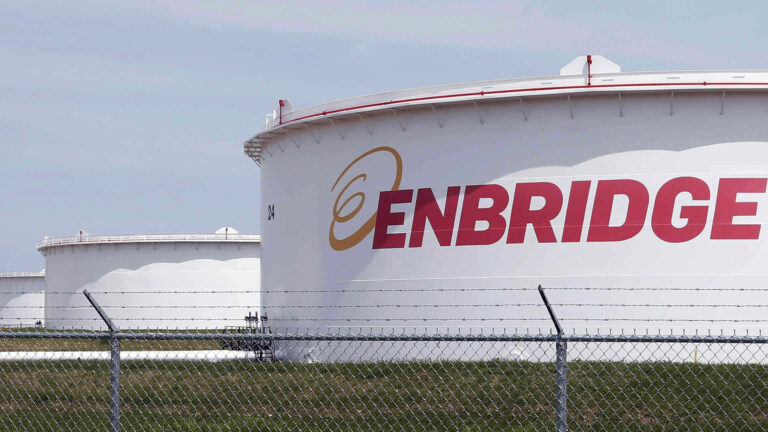
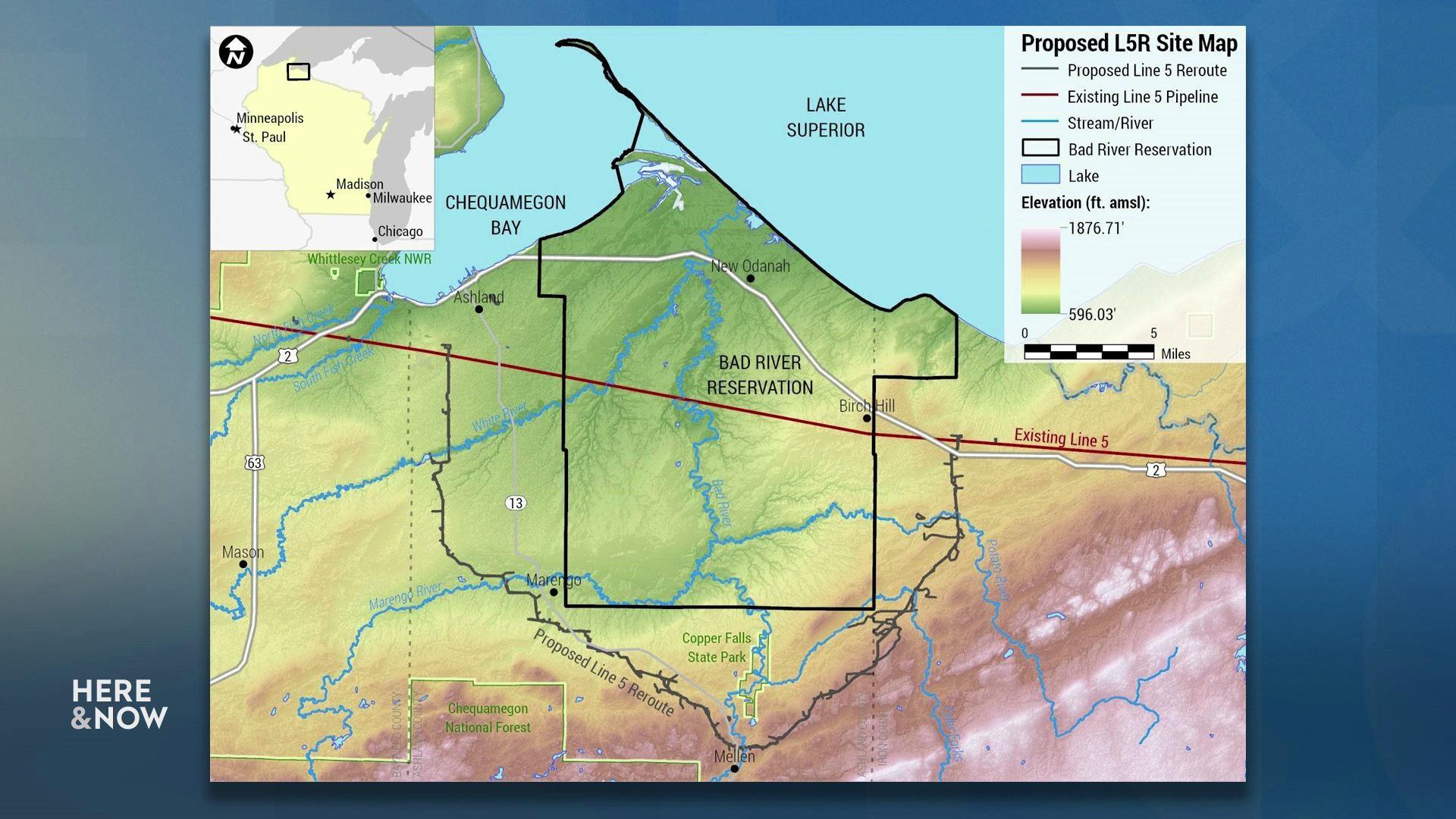


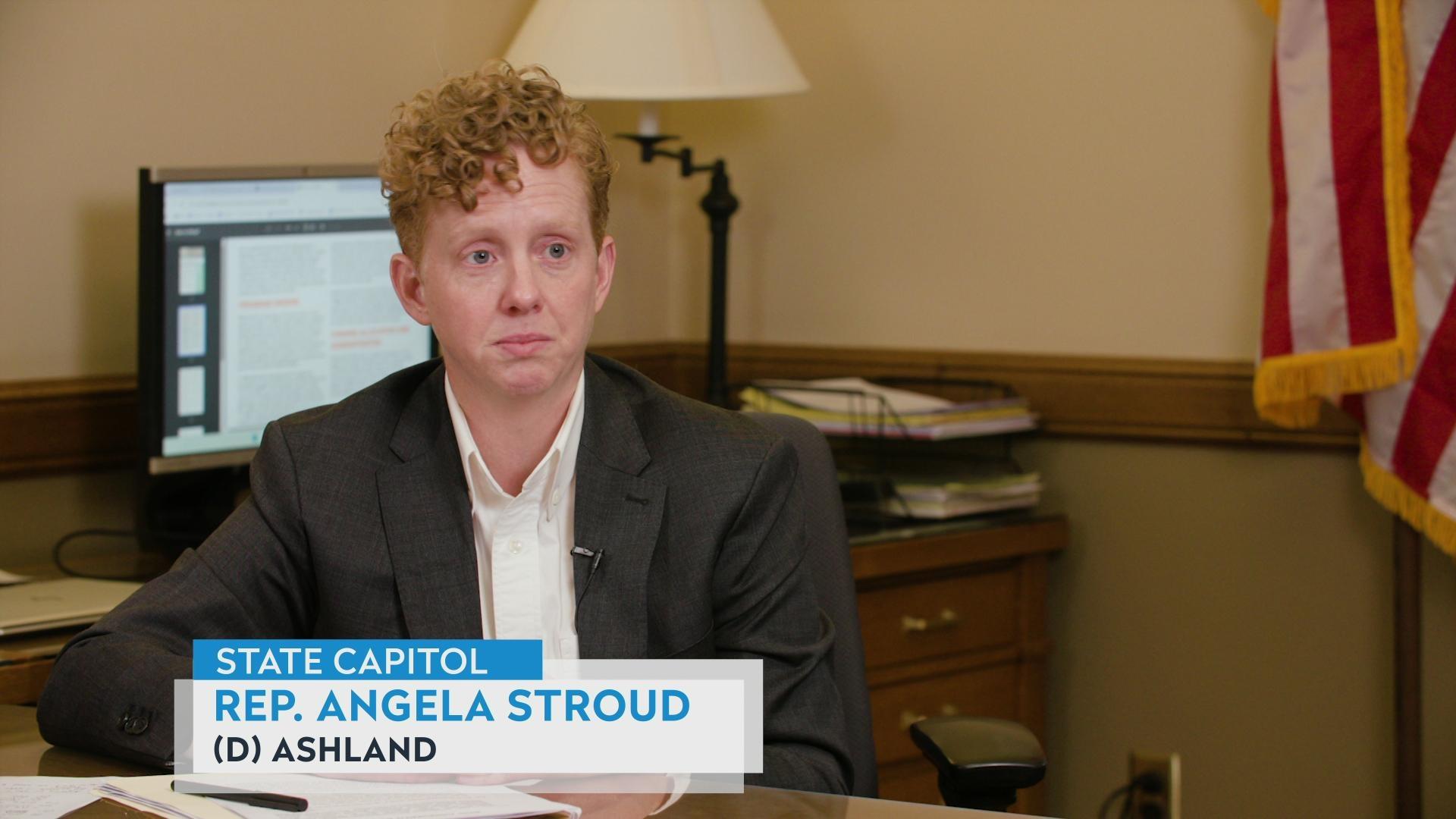
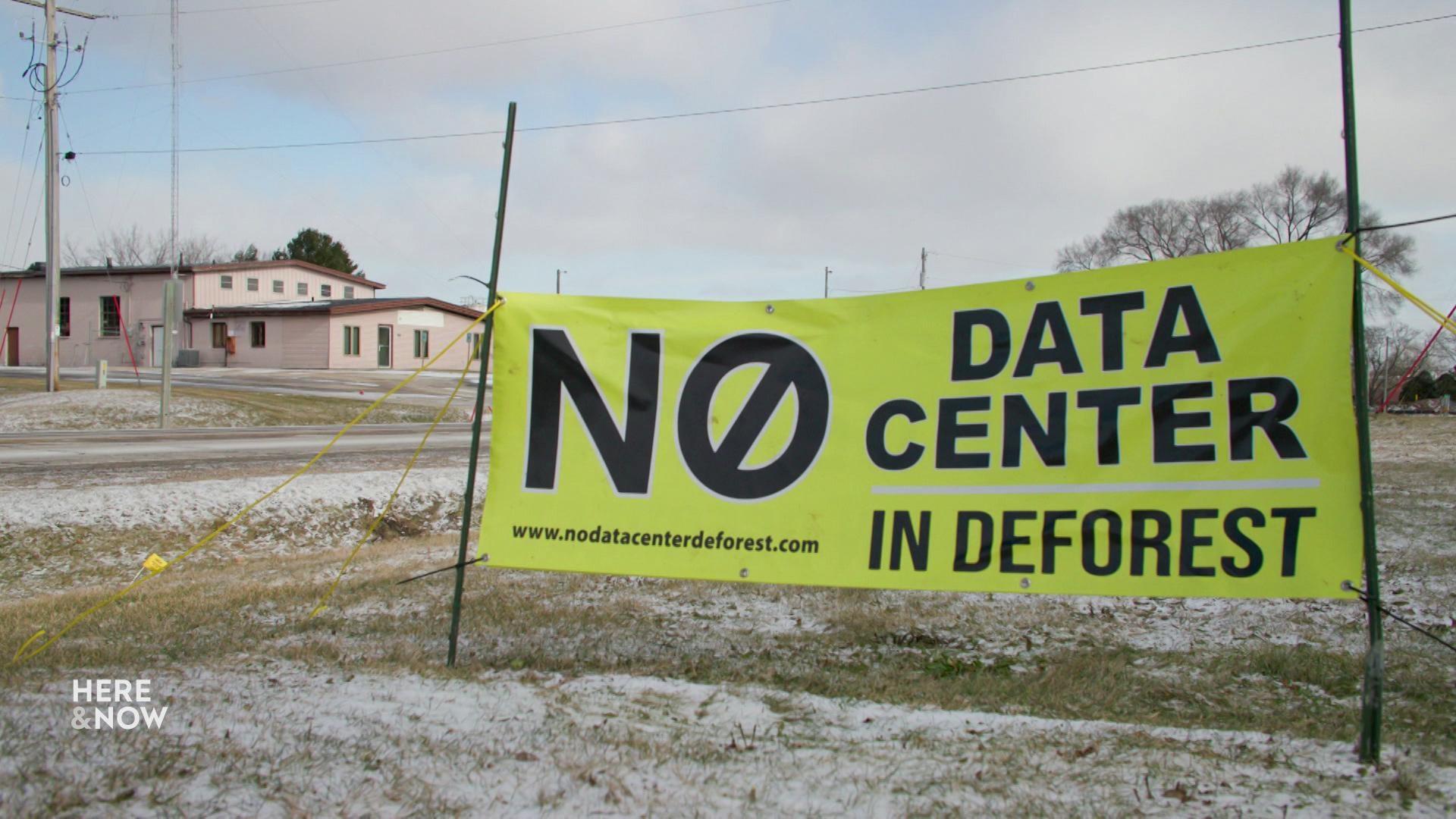

Follow Us